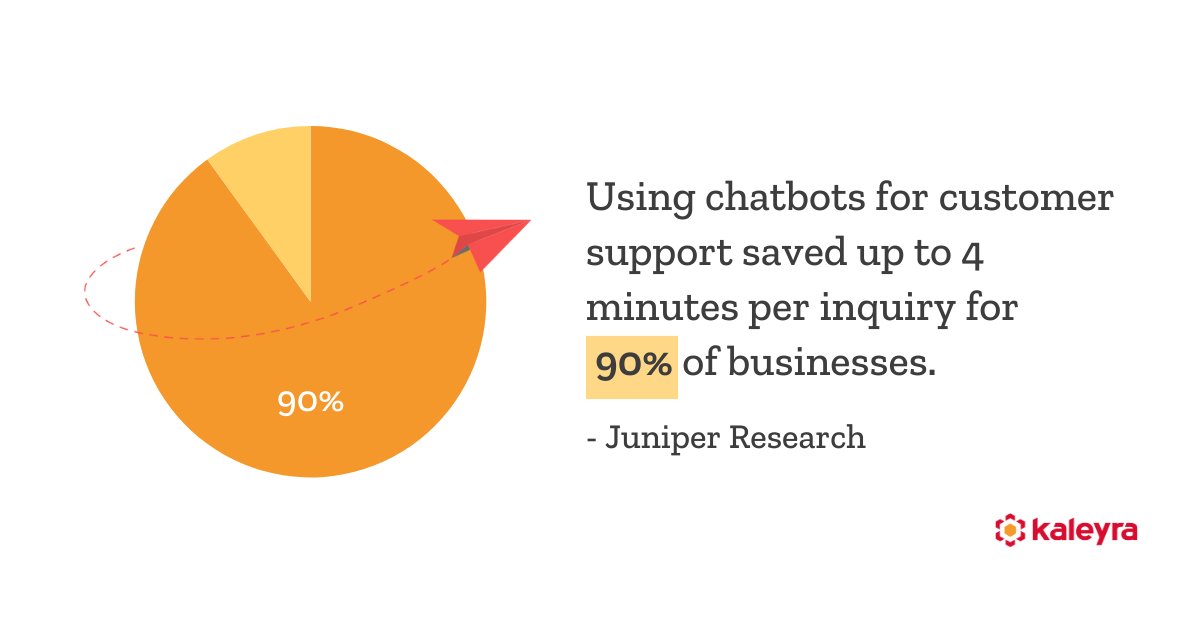
With top brands raising the bar for service excellence, customers now expect quicker responses and tailored solutions. Moreover, since the digital environment has become an integral part of the modern customer journey, conversational support has emerged as a beacon of personalized assistance and seamless communication. Read on to learn how a conversational approach transforms customer support across various platforms.
What is Conversational Support?
Conversational support refers to a customer service model that provides personalized support through conversational interfaces like messaging apps, chatbots, and virtual assistants. Customer support used to rely on standardized responses to customer inquiries and back-and-forth exchanges for issue resolution. Unlike traditional ticketing systems or phone calls, conversational support allows customers to get help through their preferred digital channels with human-like interactions.
Conversational customer service systems leverage technologies such as Artificial Intelligence (AI) and natural language processing (NLP) to engage users in dynamic, interactive dialogues. Moreover, a conversational approach ensures customers get relevant, prompt, and accurate responses.
Benefits of Conversational Customer Support
Here are the top benefits of conversational customer service –
Personalization: Conversational support enables personalized interactions based on a deeper understanding of customer preferences and history. By analyzing past conversations and user data, support systems can tailor responses to individual needs, ensuring contextual exchanges that foster lasting customer relationships.
Efficiency: Traditional support channels may often involve frustrating experiences such as being placed on hold, waiting for email replies, or lack of response during non-business hours. Additionally, navigating complex menus can add to the time and effort required to resolve an issue. Conversely, conversational support provides instant responses and streamlined experiences. Automated chatbots are particularly effective in this regard, efficiently handling multiple routine inquiries simultaneously and freeing up human agents to focus their efforts on more complex issues. This speeds up the resolution process and enhances efficiency by optimizing resource allocation. Deploying chatbots for customer support saved up to 4 minutes per inquiry for 90% of businesses, according to Juniper Research.
Scalability: The scalability of conversational support software revolutionizes how businesses manage high volumes of inquiries without compromising performance and quality. Conversational support solutions excel in adapting to fluctuating demands, such as spikes in inquiries during the holiday season, guaranteeing consistent service levels even during peak times. With the capability to operate 24/7 across various time zones, conversation AI for customer support ensures timely responses at all times.

Conversational Support Use Cases Across Industries
E-commerce
Using conversational AI for support on an e-commerce website can help businesses collect data about customer preferences and share personalized product recommendations based on their responses. Virtual assistants can serve as style guides, offering fashion advice and helping customers find the right outfits. They can suggest complementary pieces, provide tips, and showcase how different items can be mixed and matched to create versatile looks. Agents can assist customers during checkout by answering questions about payment options, shipping methods, and coupon codes.
Healthcare
Conversational AI chatbots can help bridge the gap in health literacy by providing useful information about medical conditions and procedures. Support agents can share videos, PDFs, and images, encouraging patients to adopt healthy lifestyle choices. Conversation support systems can streamline the process of scheduling appointments, sending timely medication or payment reminders, and following up with patients after visits or procedures, ensuring better continuity of care.
Education
Educational institutions can use conversational support software to answer questions about assignments, provide detailed explanations for complex concepts, and offer timely feedback on completed assignments. Virtual academic advisors can help students pick courses best suited to their educational goals, career aspirations, and scheduling preferences.
Travel
Conversational interfaces can serve as a one-stop solution for booking of flights, hotels, rental cars, and vacation packages instead of customers having to browse multiple website pages. Virtual travel assistants can create customized itineraries, such as recommendations for sightseeing, dining, and other activities. Travel companies can provide real-time updates on flight delays, gate changes, and disruptions, helping customers make alternate arrangements if necessary.
BFSI
Agents can assist users with checking account balances, requesting fund transfers between accounts, and paying bills through conversational messaging apps like WhatsApp. Virtual financial advisors can provide personalized investment recommendations, retirement planning advice, and budgeting tips based on customers’ financial goals and risk tolerance. AI-powered chatbots can help customers compare policy benefits, file claims, and monitor the status of claims.
EBOOK
Elevating Customer Experiences with CPaaS
Learn how to unlock the potential of CPaaS for memorable customer experiences

Key Aspects of Conversational Customer Support Proactive Service
Gartner predicts that by 2025, proactive customer interactions are projected to outnumber reactive interactions. Conversational AI can help businesses provide proactive support, anticipating customer needs and providing personalized solutions before issues escalate. This proactive approach helps prevent problems, reduces agent effort, and enhances the overall experience.
Always-on Support
Chatbots, virtual assistants, and WhatsApp automation can provide round-the-clock support, ensuring customers receive assistance whenever they need it. This 24/7 availability helps businesses overcome the limitations of traditional phone or email support and improves response times, leading to faster issue resolution.
Contextual Exchanges
With natural language processing (NLP) and machine learning, conversational AI can discern the context and intent behind customer queries. According to a Gartner survey, 62% of customer service channel transitions are “high-effort.” Conversational platforms help businesses ensure continuity in conversations, reducing the need for customers to repeat themselves. This enables more relevant and tailored responses, moving beyond scripted or generic FAQs, resulting in a more natural and engaging experience.
Leveraging Data
Conversational interactions provide a wealth of valuable data, including customer preferences, purchase patterns, and chat history. This data can be leveraged to maintain context, personalize experiences, and enable seamless handoffs between AI and human agents when needed.
Integration with Business Systems
Conversational support software can be integrated with various enterprise systems, such as CRM platforms, inventory management systems, payment gateways, and knowledge bases. This integration enables a seamless information flow between different departments and systems, allowing for more efficient issue resolution.
Evolving Trends in Conversational Support
As businesses expand globally, conversational systems capable of supporting multiple languages will become essential. Natural language processing models that can understand cultural nuances and respond in different languages will enhance the customer experience for global audiences.
With the increasing integration of conversational platforms with technologies like the Internet of Things (IoT), customer data platforms (CDP), and wearables, there is potential for hyper-personalized support experiences.
Advanced capabilities such as computer vision, augmented reality (AR), or virtual reality (VR) can help businesses provide more immersive support experiences.
The future of conversational support holds immense promise and is poised to redefine customer-brand interactions. Groundbreaking technologies with greater emotional intelligence and robust analytics will elevate customer support interactions. Businesses that embrace these innovations can solidify their competitive edge by setting new standards for customer engagement and delivering superior support experiences.

Kalaivani Narayanan
Content Specialist
Supercharge Your Communication!
Get in touch with our experts who strive hard to bring the very best in cloud communications technology to you.

